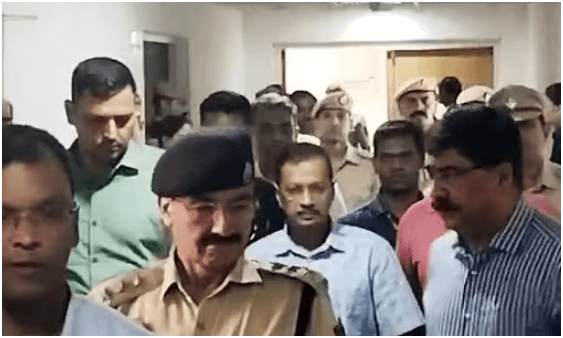
Arvind Kejriwal Takes Legal Action, Moves Delhi High Court Against CBI Arrest
Arvind Kejriwal has taken a significant legal step by approaching the Delhi High Court to preempt any potential arrest by the Central Bureau of Investigation (CBI).
This move comes amid escalating tensions between the Aam Aadmi Party (AAP) leader and the central investigative agency.
Arvind Kejriwal decision to seek judicial intervention follows recent developments involving allegations of corruption and misconduct leveled against him by political opponents. The CBI, acting on these accusations, had reportedly initiated proceedings, prompting Kejriwal to take preemptive legal action to safeguard his rights and challenge any potential arrest warrants.
The Delhi High Court petition filed by Arvind Kejriwal seeks protection from what his legal team describes as politically motivated actions intended to undermine his authority and disrupt governance in the national capital. Kejriwal, known for his vocal stance against corruption and bureaucratic inefficiency, asserts that the allegations are baseless and aimed at tarnishing his public image.
The legal battle between Arvind Kejriwal and the CBI underscores broader political tensions and the high stakes involved in the governance of Delhi, a key political and administrative center in India. Kejriwal’s AAP party has been at the forefront of advocating for accountability and transparency in government, often clashing with federal authorities over jurisdictional issues and policy decisions.
As the legal proceedings unfold, the outcome of Arvind Kejriwal petition before the Delhi High Court will likely have significant implications for his political career and the broader landscape of Indian politics. The case highlights the complex interplay between federal and state authorities in a democratic framework, underscoring the challenges and responsibilities faced by elected leaders in maintaining public trust and upholding the rule of law.
Arvind Kejriwal decision to challenge potential arrest warrants through judicial recourse reflects his commitment to due process and legal principles, asserting his innocence and readiness to defend himself against what he perceives as politically motivated charges. The outcome of the legal battle will be closely watched by political observers and the public alike, shaping perceptions of governance, accountability, and the rule of law in India’s vibrant democracy.
Arvind Kejriwal’s move to approach the Delhi High Court against potential arrest by the CBI marks a pivotal moment in his political career and underscores the broader implications for governance and judicial oversight in Delhi. As legal proceedings progress, the case will continue to draw attention and scrutiny, influencing the trajectory of political dynamics and public discourse in India.
The Delhi High Court’s response to Kejriwal’s plea will be crucial in determining the immediate future of his political career. A ruling in his favor could provide him with the necessary legal shield to continue his governance without the looming threat of arrest, thereby enabling him to focus on his administrative duties and political agenda. Conversely, an adverse ruling could significantly hamper his ability to govern and lead to a protracted legal battle that distracts from his administrative responsibilities.
The broader implications of this case extend beyond Kejriwal’s political fortunes. It brings into sharp focus the role of investigative agencies in a democratic setup and their independence from political influence. The CBI, as India’s premier investigative agency, is expected to operate with impartiality and integrity. However, cases like this fuel the perception of its potential misuse for political purposes, which can erode public trust in such institutions.
Furthermore, the case underscores the challenges of federalism in India. The tension between the central government and state administrations, especially those led by opposition parties, often leads to conflicts that hinder effective governance. Kejriwal’s case is a vivid example of how these conflicts can escalate into legal battles that consume time and resources, potentially at the expense of governance and public welfare.
For the latest updates-click here.


